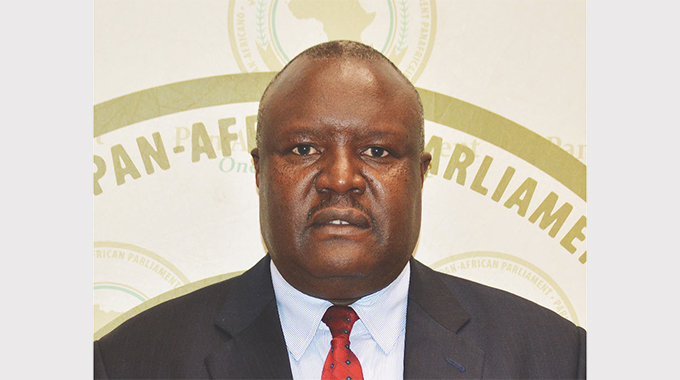Traditional knowledge can enhance drought coping mechanisms

Elita Chikwati in Mangwe
Traditional knowledge coupled with smart agriculture practices are essential survival tools that could help smallholder farmers in drought prone areas to increase agricultural production during droughts.
This was said by WFP country director Ms Francesca Erdelmann in an interview during a food distribution exercise in Madabe, Mangwe District in Matabeleland South yesterday.
“The elderly people in communities, through their experiences from past drought years, could also assist with solutions to counter climate change effects,” she said.
“We benefit from community elders who have history and memories of the past. Working with community elders helps us to go back to the traditional methods of agriculture which we can combine with modern practices to cope with this type of dramatic circumstances.”
“As WFP, we are not only doing food assistance; we are also working with communities to build resilience and infrastructure that allow us to do local production not only of cereals but of fruits and vegetables and bring them to the market,” said Ms Erdelmann.

Women from Madambi Village, share grain yesterday.
WFP is working with World Vision and USAID to complement Government efforts to strengthen resilience building among communities affected by the El- Nino-induced drought and ensure food and nutrition security for affected households during the peak of the lean season (January to March).
Mangwe is in region IV and V and receives low rainfall of between 250 and 450mm annually and farmers in the area grow traditional grains but this season the crops were destroyed by drought.
The drought also affected other sources of livelihood such as amacimbi which the community usually harvests for sale.
In Mangwe, 26 434 people are benefitting from the WFP lean season assistance programme. The people receive sorghum, pulses and cooking oil.
Madambe village head, Mr Joseph Nleya said this year’ s drought had been severe and likened it to the 1947 drought.

Madabe Village head Joseph Nleya
“In 1947, there was a severe drought and people did not have anything proper to eat as back then there were no food distributions and there were no shops where people could buy food as is the current situation.
“We hope we can have food for work projects where locals can work and get paid. The situation could also improve if we had access to irrigation facilities. This year our dam is drying up and the river bed has gone dry,” he said.
Mr Nleya said only the most affected were receiving food assistance. He called on Government and development partners to continue with food assistance even after the lean season as most people are not going to get any harvest because of the drought.
USAID mission director Mrs Janean Davis said they were waiting for the ZIMVAC report to determine the number of people who need food assistance.
“It is also important for us to provide additional opportunities so that even throughout the year, people have the means to support their families and households.”
She expressed gratitude to WFP for sourcing food to help those in need.
“We appreciate the WFP’s support for Zimbabwean smallholder farmers for sourcing some of the commodities from local manufacturers who purchase the produce from farmers.
“Many of the farmers participate in USAID- supported activities. This contributes to improving Zimbabwean livelihoods and promoting the country’s economic growth,” she said.
Matabeleland South Minister of State Evelyn Ndlovu urged people not to despair as the Government was working with developmental agencies to assist those facing food shortages and ensure food security.
She said people should also unite and help each other in times of need as better times were coming.
“You should have hope as we are coming back as Government together with the WFP, USAID and World Vision to help you. Not even one person will die of hunger in Zimbabwe, even the President has said so.
“No one will die of hunger this year. When the cropping season comes, we will also give you seeds and fertilisers for next year. Let us stick together as Zimbabweans and love each other. Let us help those in need,” she said.








Comments